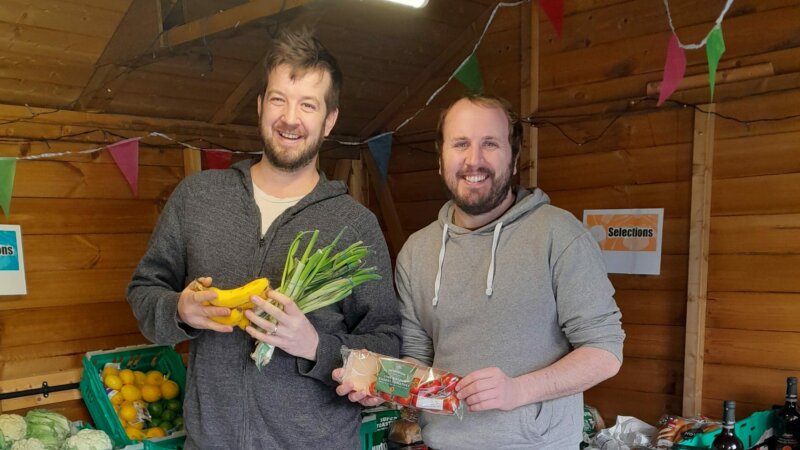Cinematic Orchestra: Undeniably beautiful and smoky
Wikipedia describes the Cinematic Orchestra as "a British electronic and jazz group". Although factually correct, this description does the band a massive injustice and leaves a lot to be desired. Instead, think more organic and sensual than other members of the Ninja Tune roster. The Cinematic Orchestra deliver the missing soundtrack to a rainy French Film Noir; a film which may never be made, but the music is there, undeniably beautiful and smoky.
We talked to band leader Jason Swinscoe about the history and ethos of his seminal band.
I understand you have an interesting story about how you got signed by Ninja Tune...
I used to work for them, back in 1996. Previous to that, I'd met a guy who was doing work experience at Ninja Tune whilst DJing in a small club in Scotland, and after chatting to him I realised I needed to get a contact for the guy that runs Ninja Tune, which was Peter Quicke. When I finally moved down to London, I moved down with one suitcase and inside it was a Bang and Olufsen turntable, a Quad 303 amp and a few clothes around it, to kind of cushion it. That was it, and a bunch of records.
I got in touch with Ninja and got taken on, making cups of tea and generally helping out in the studio. I finally found a position doing distribution and marketing. I really wanted to get into the mechanics of how a record label works to allow me to understand it, and then to give me a chance to present my music at some point, which was a pure hobby at that time. I had no idea that they'd be interested in signing me, or how long I'd be working there, but I just knew I wanted to be in the music world.
How did you go about it, once you got to the stage where you thought your music was ready?
I'd be working there 11-7 everyday, Monday to Friday. I'd get home, make a strong pot of coffee and with the money I'd earned with signing on and saving up and so on, I bought an old performer 630 Mac and an Akai S1000, used Cubase as a sequencer and just started making music without any parameters. My record collection was a bunch of old film scores and jazz from the 60s and early 70s, and without any tuition I just tried to find ways of bringing the two things together. It was unconventional in its form as well as its arrangement. I was interested in the narratives of film music and how to bring jazz elements into that, to stay away from the pop formula of intro/verse/chorus.
So these pieces grew, and then I started just presenting them to Peter Quicke. Initially, he wasn't really listening or getting involved, so I'd work on another piece and present that and got other people in the office involved. At that time there were a lot of young music heads in the office, and that's how I met Dominick Smith, my manager, and various other people. Amon Tobin was signed to Nine Bar Records under the name Cujo. That was literally round the corner in London Bridge and I introduced him to Ninja Tune. It was a really strong centre and vibe there, so I just kept pestering Peter and other people in the office. After a while, we decided to start putting some of the music out, and I just kept pushing slowly.
Does Ninja Tune ever get involved in the creative process?
I am totally left to do whatever I want to do, which is a preferable situation for me. People often ask why I've never signed to a major, and there are two aspects to this. Firstly, the music is probably a bit too leftfield, as I get a bit experimental in places and in a way it's not structured enough for marketing purposes. The other reason is that there'd be much more involvement from a major with the A and R, the direction and marketing. On that side, you end up losing control a little bit, so for me it's much, much better to be with an independent label and have that freedom. They have been very supportive in that way. They just call up and say, "Have you got a new record or what?"
Is your working process still the same as it was back in those early days? Is it still sample based?
It's actually changed a lot since Ma Fleur in 2007. That record was a definite reduction process, returning to the basic song form - for example, on 'To Build A Home'. At that point, I was listening to a lot of new folk that was coming out, people like Joanna Newsom and Regina Spektor.
I wanted to move it away from the pop culture of Everyday, where I had Roots Manuva and Fontella Bass referencing the music of their roots - hip hop and R'n'B respectively - and so the band and rhythm bass was a very strong part of the music. On Ma Fleur, I took some of the drums away and went back to the basic song form. I'm actually working on a new record at the minute, which again is without any samples at all. I'm creating samples by recording live music and using more experimentation, so it will be more like a band. I've written all the material, but it needs to be performed by a band live, and built with all the musicians contributing, so that it becomes much more like a traditional kind of rock band but with a cinematic production and edge.
My working process is constantly evolving. I mean, [1999 debut] Motion was a homage to film scores and 60s jazz like John Coltrane, Miles Davis, Gil Evans etc . Everyday was bringing a band into sample-based music. Every album has been about introducing more elements and influences, being less rigid about where the music can go. Every album needs to be a whole new experience with a different set of problems and risks, and for me it's about the challenge. It has to be a challenge. )





